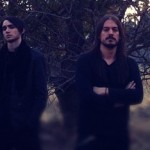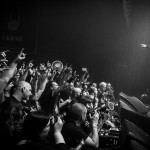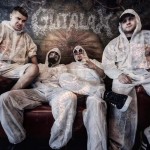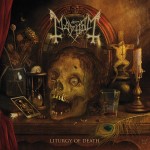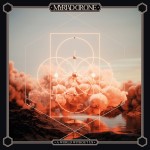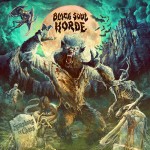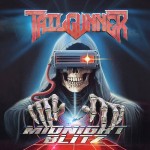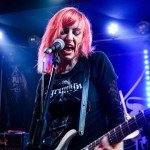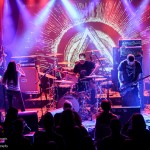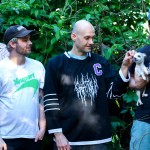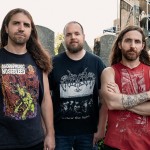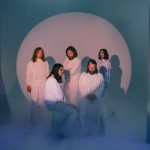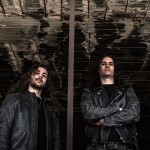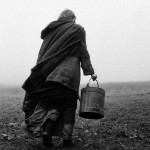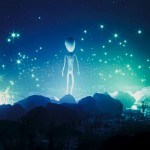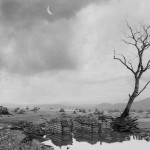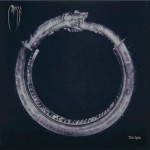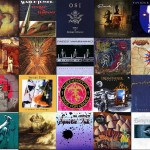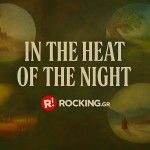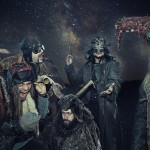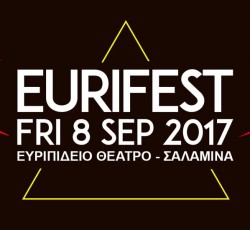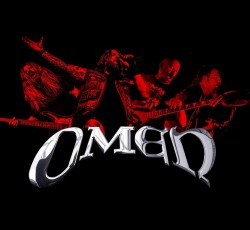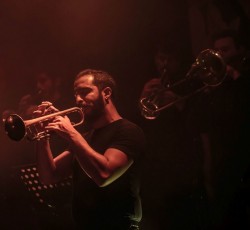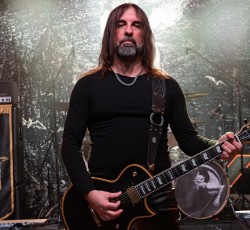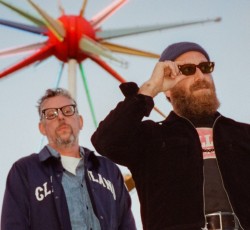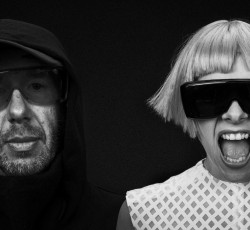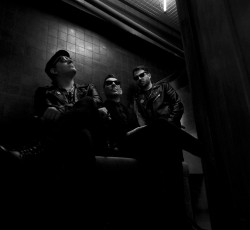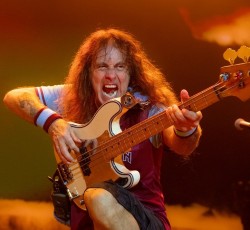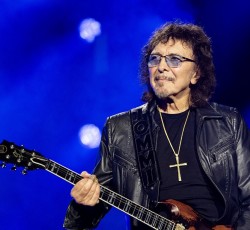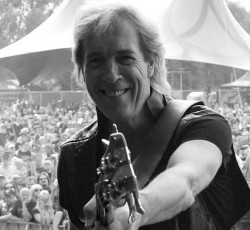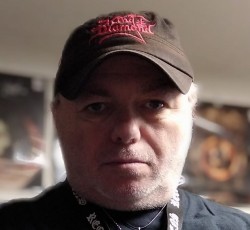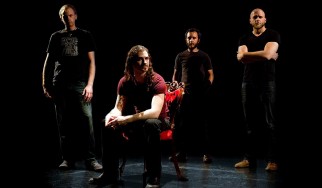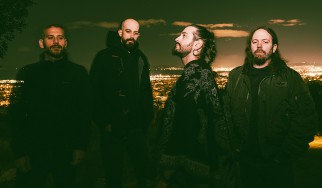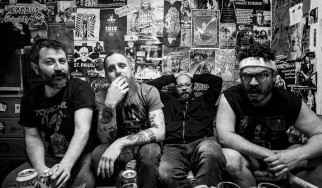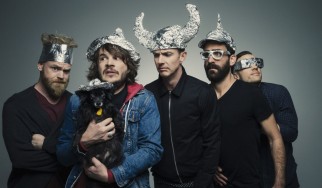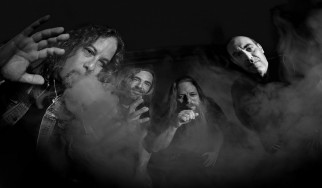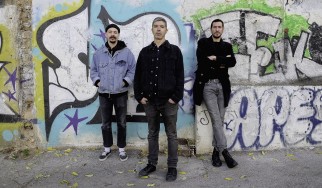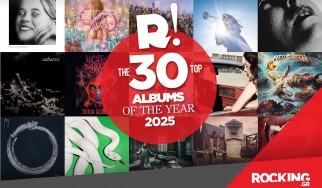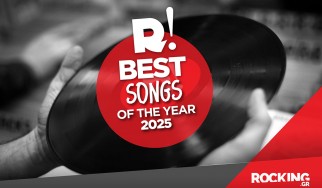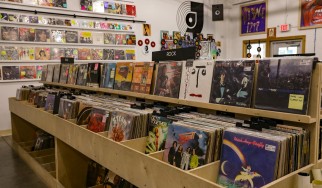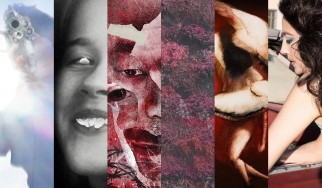Drug Church: "Art was intended to be provocative, but also a bit of a misdirect"
Singer Patrick Kindlon introduces us to the intricate world of one of the most critical contemporary post-hardcore bands, with this year’s outstanding "Prude" as a point of reference
Μπορείτε να διαβάσετε την ελληνική εκδοχή της συνέντευξης εδώ.
At regular intervals, in the vast underground scene, certain "explosions" leave a distinct mark. Such was the release of "Cheer" back in 2018 by Drug Church. Since then, the New Yorkers have become one of the most clear-sighted and meaningful voices in modern post-hardcore. Their album this year, "Prude", is yet another impressive release, fully showcasing all the unique elements that highlight the band’s songwriting.
Opportunities to speak with musicians of this caliber don’t come often. The warm response of frontman Patrick Kindlon in the interview below, confirms everything you hope to see from such artists. The singer and lyricist, who, as it turns out, has distant greek roots, guides us into his intricate psyche and, by extension, the band’s world. From hardcore as a genre and a scene, to the effects of the pandemic, from the role and meaning of lyrics to maturity as an idea and state, Kindlon and Drug Church reveal themselves in a powerful interview, rich in content and offering even stronger food for thought.

Greetings, I am Apostolis and I welcome you to Rocking.gr! Congratulations on your newest album! How’s been the feedback so far?
Thank you for having me. We've been really happy with the feedback. You never know how it will go when you put something out into the world. After all, most things people hate started with a few guys in a room saying, "they're going to love this!" So you can never be sure how something will be received. But I guess that's the fun of it.
It’s been two years since the release of "Hygiene". Looking back at that record, how do you perceive it in relation to your total discography?
I think all musicians have a difficult time being objective about their albums. They either love it too much or hate it too much. So I don't suppose I'm any more reliable. But, I still believe it's a strong record and did exactly what I hope all our records do- make us 20% better than the last one.
I did see a number of people truly lose their minds during the pandemic
How much did the global pandemic and its social consequences affect your psyche and your relationship with music during the creation of that record? Furthermore, I am obligated to ask what inspired you to write a song like "Detective Lieutenant"!
I imagine the pandemic had some effect for sure. But I can't be certain exactly what. My life was going through changes on an individual level too, so it's almost impossible to figure out which had the greater impact on the record. I did see a number of people truly lose their minds during the pandemic, and that definitely had some influence on what we wrote. 'Detective Lieutenant' came from watching people forget how art works. For a moment there they seemed to think you have to adopt the views or lifestyle of the artist. Which of course isn't true. You can just love the beauty they put into the world.
Was the compositional approach in any way different this time around? Do you feel the samepeople as two years ago?
Similar approach this album, but I was in the studio for the recording of the instruments this time. Which I typically am not. So maybe in some small way I influenced that end of things. But otherwise, similar. The guys come in with ideas, they bang them around until songs are formed, and then hit record. Then I listen to the songs a few times and write lyrics, and hit record again. Nothing complex about writing music. I'm in a different place as a man, both mentally and physically, so I imagine there has to be some changes in the lyrics connected to that.
The title came from the idea that it's easy to avoid new experiences for fear of how you'll be perceived
I feel that "Prude" is one of the most personal records of your discography. Was there any common theme or inspiration that connected the songs of the album? Furthermore, would you like to talk to us about how the title and the cover artwork of the record came to be?
No, I'm not really smart enough to maintain a theme across a whole record. At least not on purpose. The title came from the idea that it's easy to avoid new experiences for fear of how you'll be perceived. The art was intended to be provocative, but also a bit of a misdirect. Because 'prude' in this sense doesn't mean a fear of sexual experience, but experience more broadly.
Many times, musicians are too close to the material to really know what they mean by it
While listening to "Prude", I got the feeling that while it is drenched in raw realism, it reeks of hope. I know that it’s just my interpretation, but, do you feel that way about your music? How does it affect you in a personal level?
That's a nice thing to hear about it. I think many times, musicians are too close to the material to really know what they mean by it. The lyrics appear in your mind, and only later do you realize some of the things you were really saying. But I don't mind the idea of being hopeful.
I think the 'personal is political', is a slogan that people repeat without reflecting on the implications
Your stories have always had a soft spot for outcast personalities, tenderness towards the unavoidable missteps in someone’s life, yet you never preach about "what’s right or ideal". In what degree, you start to view the personal matters as parts of a wider political discourse?
I don't consider the wider political discourse at all. I think the 'personal is political' is a slogan that people repeat without reflecting on the implications. If everything is one thing, then the phrase is self-negating and has no utility. It's a bit like saying, "being is existing." Not very useful. I am an individual talking about individual things. People often pull class politics from my work, and I am fine with that. But it's never intentional on my part. I just write about specific things that engage me.

Would you like to name me five non-musical influences that inspire your songwriting? Any favourite authors you would like to share with our readers?
A tough question, because there's material I think influences me and then there's material that probably actually influences me. It's very difficult to know what is really seeping into your brain and what you just wish was seeping in. Comic books are my preferred reading, and now you have me wondering what comic creators have made an impact on my work. I would imagine Pat Mills has crept into my influences in some way. His work is often didactic, and I try not to be. But his best material drips with a funny cynicism that I enjoy.
It took me a while to feel comfortable with people singing along
How’s the feeling of hearing your fans cry their voices out singing your lyrics on your live shows? How do you approach a live performance, as an artist?
It took me a while to feel comfortable with people singing along. I don't assume I'm a relatable person, so it's always nice to find out people connect with the lyrics. I don't overthink performing. I just try to make sure I'm expressing myself first and foremost and then try to also not totally mess up the lyrics.
Everyone defines hardcore differently, both as a sound and as a lifestyle
Do you feel part of the hardcore scene? How do you connect with its ethos up to this day? Is the anger still there for you, and if yes, in what way?
Musically, my definition of hardcore is probably too narrow to include Drug Church. But it seems clear that I only really know how to perform hardcore music. So, I'm not quite sure how I would define the band. I am too close to tell. I'm comfortable with whatever people hear in us. Just happy someone is listening. The ethos question is tricky. Because definitions are so different. Is hardcore a youth culture? I am too old to be included in that. Is hardcore a commitment to avoiding the dominant music culture? I play festivals with mainstream acts. Is it about the message? I don't have a message other than trying to express my thoughts and feelings. So, I think everyone defines hardcore differently, both as a sound and as a lifestyle. And I'm sure I make some people's definition of the word and fall very far outside it for other people. I don't spend a lot of time thinking about myself, so I probably am not equipped to define myself accurately.
What would you change in the wider punk community, if you had the power?
I don't know if I would change anything, because then I'd feel like I redirected a river. It's up to the river to decide its course and the more man messes with it, the greater the potential damage. I think any contribution I make has to be without trying to shape it.

I have the feeling that you reached a different audience with 2018’s "Cheer". Do you agree? How important do you regard this album for your evolution as a band?
I agree. I think it made us a 'real' band to many people. Musically, I think we were on a slow and steady evolution and that album represents when we first crawled onto land.
I think of all the musicians I grew up on as damaged old men
Grunge and alt-rock in general, have always been an important part of your sound. Are there any bands and artists that you still look up to? How do you view your childhood idols, if any, today?
I wasn't tapped into grunge when it was going on. I was getting my music from the public library, so most of the artists were from the previous generation. By the time I got into music that was happening around me, I was too locked onto punk and hardcore to give much time to grunge. But I do enjoy a number of the college-rock bands that presaged grunge. I think of all the musicians I grew up on as damaged old men. And I don't say that with any judgement. I think they're great. But they are just people who were really good at one thing and probably have a number of personal failings outside of that one thing. So I'm happy for their successes and when they do something stupid I don't give it much time. Most people do stupid things occasionally.
"Myopic" was the first teaser off "Prude", a song released a year ago. Why did you pick it as the lead single of your new era?
We threw that one into the world without much thought about the album. If it didn't fit with the rest of the material we wrote, we would've left it off Prude. But we love playing it and it adds a lot of bounce to the album, so I think it was the right choice to include it.
Would you like to share us the story behind "Business Ethics?
- I'm hesitant to share much because I'm worried I'll get sued.
I have friends, not a community
In the outro of "Chow", you repeat "keeping your circle small, is how you rescue yourself". Did this worldview came to fruition by trial and error, as the years went by, or was it there for you since the days of your youth?
I am sometimes described as a contrarian, but I think that's just a word people use to dismiss someone they don't want to listen to. The truth is, when I see lots of people doing something I am immediately skeptical of that thing. It's how I've always been. I don't trust what people say is good. And I think community for the sake of community is a brain disease. If the point of community is to perpetuate itself, then is the value of the individual based only on furthering that thing? I don't care to be judged in that fashion. My value exists outside of what I can do for other people. I've always felt that way, but I think experience has hammered it into a very clear fact for me. I have friends, not a community.

I feel that "Demolition Man" and "Peer Review", both musically and thematically form aninteresting dipole. For you, can acceptance of our true nature, and of the absurd state of a life without inherent meaning, coexist with a personal and collective effort to just be better to us, to each other? In other words, do we live and let live, or do we keep up the good fight?
- "Can't tell no one what to do."
Final questions, and I would like to thank you for your time! Where do you view Drug Church in 5 years? Any future plans that you would like to share? The final words are yours!
- Thank you for your thoughtful questions. And thank you to the Greek readers checking this out. My mother's family is from Crete and I hope to explore the island soon. As far as goals, I'm pretty simple. I hope in five years I am still making music that speaks to my sensibilities and reflects my interests. So much of how people recieve you is out of your hands, so I only worry about expressing myself to the best of my ability. And then I see where it takes me.
Here in Rocking.gr, we have a monthly column where we post our playlists. It would be great to be our guests by naming us the 5 albums that you listen to the most during this time of the year!
- For walking around in autumn you can't go wrong with Zomes. It's all beautiful, but people who want songs with vocals should check out "Near Unison" and "Love's Lesson".
- I recently contributed some liner notes to a 7 Seconds album reissue and it put me in the state of mind to revisit all the band's material. So much good stuff. Everyone on Earth should listen to "New Wind" and the "Praise" EP.
- I've been listening to some Gordon Lightfoot in the van the past week. 'Sundown' caught my ear the other day and I realized I've heard that song millions of times, but never looked up what it was about. The answer to that question is a bit ugly, but the album itself, also called "Sundown", is beautiful.
- I'm starting a life in Australia, so I find myself trying to catch up on that country's rock history. Recently we played a festival and shared a green room with Cosmic Psychos, which was a total blast. I'm most familiar with the "Go The Hack" and "Blokes You Can Trust". Both and both are great.
- Autumn is also a great time for Wovenhand. Check out "The Threshingfloor". It's like Echo & the Bunnymen doing neofolk.


